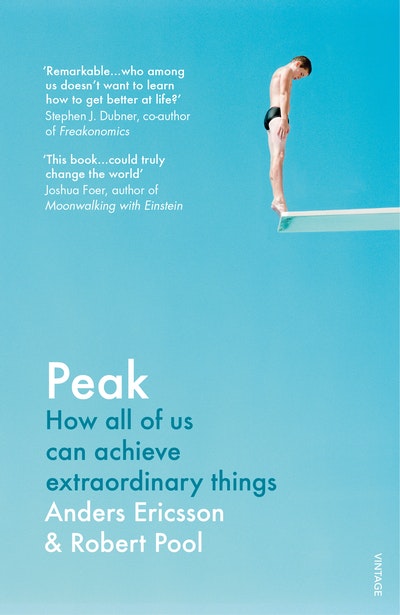Professor Anders Ericsson is the world’s reigning expert on expertise. His research into what makes ordinary people achieve the extraordinary was the inspiration for the 10,000-hours rule – the popular theory that 10,000 hours of any type of practice will allow an individual to excel in any field. In this book, he describes how a particular type of extended practice leads to exceptional performance.
Anders Ericsson began his research into expertise when he conducted a memory trial on a young man. Despite having no previous aptitude for memory exercises, after several hundred sessions the young man was displaying memory powers over 10 times that of an average person. This was as a result of the system of training Ericsson had put him through – a process Ericsson has named ‘deliberate practice’.
Professor Ericsson has gone on to have his research widely cited in major newspapers and magazines worldwide, and he has worked with major international organisations, as well as Oxford, Stanford and Harvard medical schools, teachers and educational researchers, professional sports teams (Manchester City Football Club, Saracens Rugby Union Club, UK Sport, England and Wales Cricket Board), and military groups.




